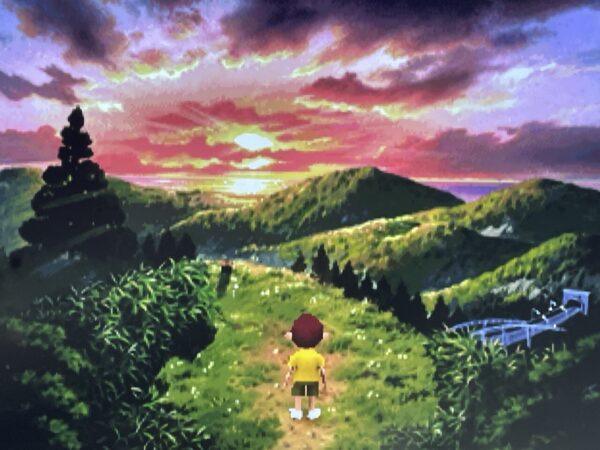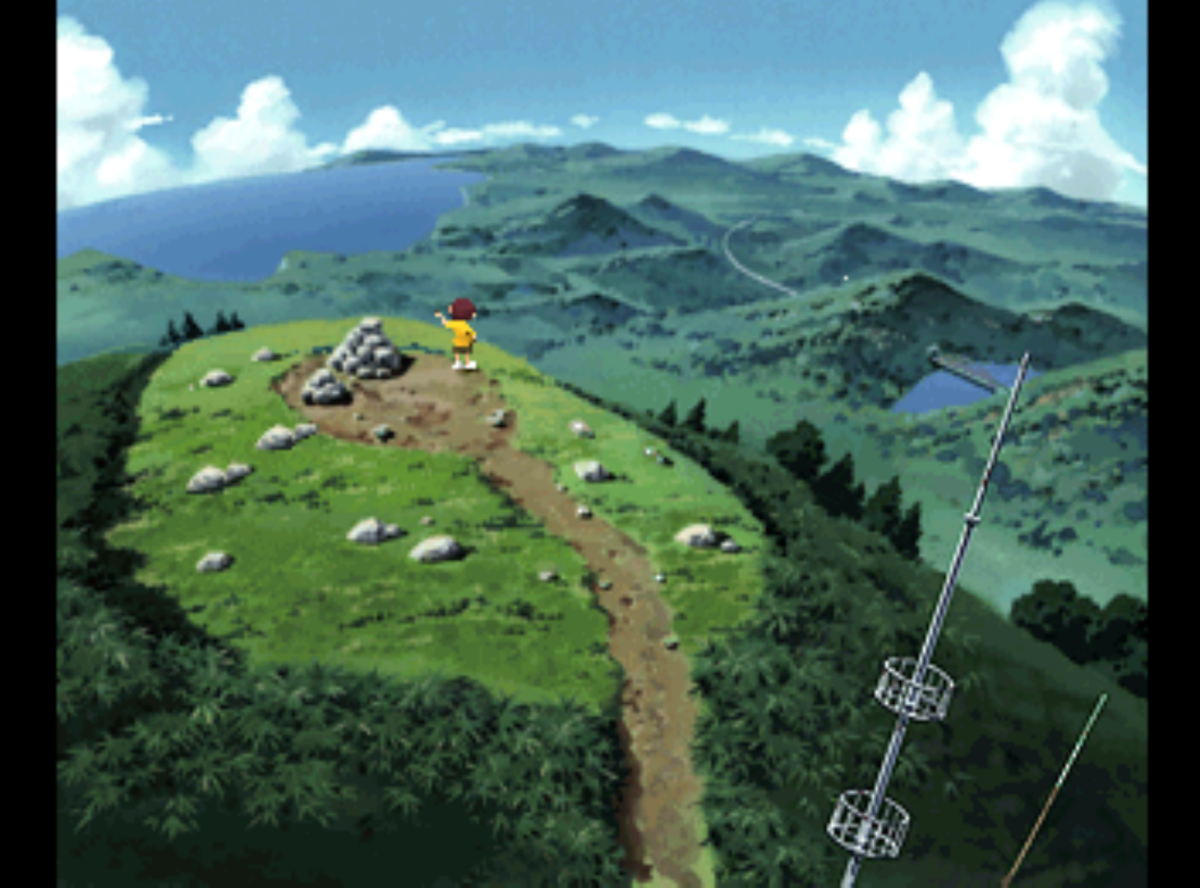One of the reasons I’ve been studying Japanese for many years was so I could start playing games from Japan.
I study for up to two hours every day, reviewing kanji and grammar and I have weekly lessons, and I need lots of (ideally challenging) reading practice.
I’ve had 僕の夏休み (Boku no Natsuyasumi) on my to play list for quite a while. When I finally got around to setting up my MiSTer multisystem it was one of the first games I reached for.
What is Boku no Natsuyasumi?
The games name literally means My Summer Holiday. At face value it’s a sort of life-simulator for a little boy called Boku who goes to stay with his Aunt, Uncle and their family for the month of August in rural Japan in August 1975.
It’s a lovely, pure story about a child being free to spend each day of his summer holiday exploring a new place by collecting bugs, catching fish, flying kites, chatting to others, and solving problems.
And it’s all done in the most beautiful pre-rendered backgrounds. It feels like a sort of hidden gem – at least to the English speaking world as it’s a series of games are that adored in Japan.

Memory and nostalgia
Where Bokonatsu really shines though is how it taps into the idea of childhood nostalgia. The idea of looking back and reflecting on good times. Particularly the trope of the summer holiday. Although the game depicts a very particular rural Japanese break it’s a very universal experience that we can all relate to.
I’m not Japanese but the idea of reflecting back on a particularly happy moment in our childhood is something we can perhaps all relate to. When our summer holidays were an enormous block of time that stretched our in front of us and all we had to do was play every day.
The idea of the 田舎 (rural countryside) holiday is a particular fascination in Japan, and I think that explains why this entire series of games is so popular in Japan, it also partly explains why it’s never been localised – it’s distinctly Japanese and perhaps it was felt this could put off some people.
For the Japanese language learning diaspora, it’s a work of art that everyone should play. I hope movements to get a fan translation completed so happen.
A diary guide to Boku no Natsuyasumi

You save the game by writing a picture diary at the end of every day.
I love making notebook entries when I play games. This is something I do routinely. Especially as I get older and there are long stretches between one game session and the next.
I was having fun making kanji and story notes about the game as I went along and then four days in I thought about putting it into a diary format and this resonated with the style of story telling that the game itself uses.
I also put together a map of the whole game area, which may be cheating it’s premise a little bit, but so so crucial to me getting my bearings and helping me remember where I’d explored.
I’m not fluent in Japanese. I understood about 60% of Boku Natsu’s dialogue. That’s kinda why I’ve been playing it. However I figured this was 60% more than the average English speaker and in making my own diary of my playthroughs, I thought this could be of use to others.
Playing a game in second language is a bit like playing a puzzle. I hope you have some lovely epiphany moments too.










